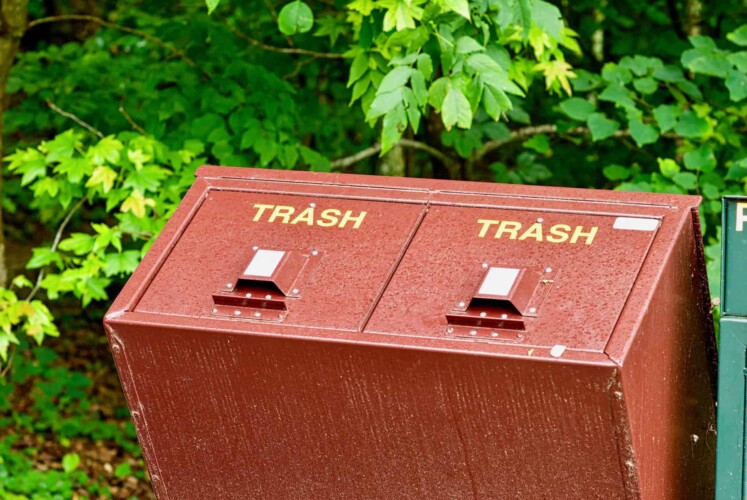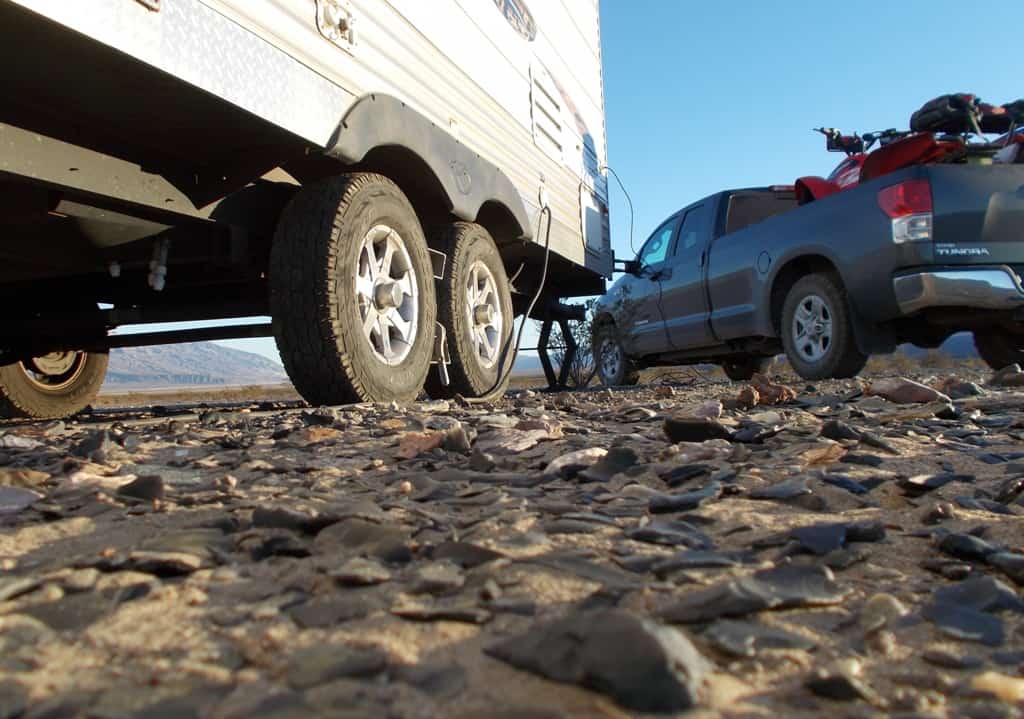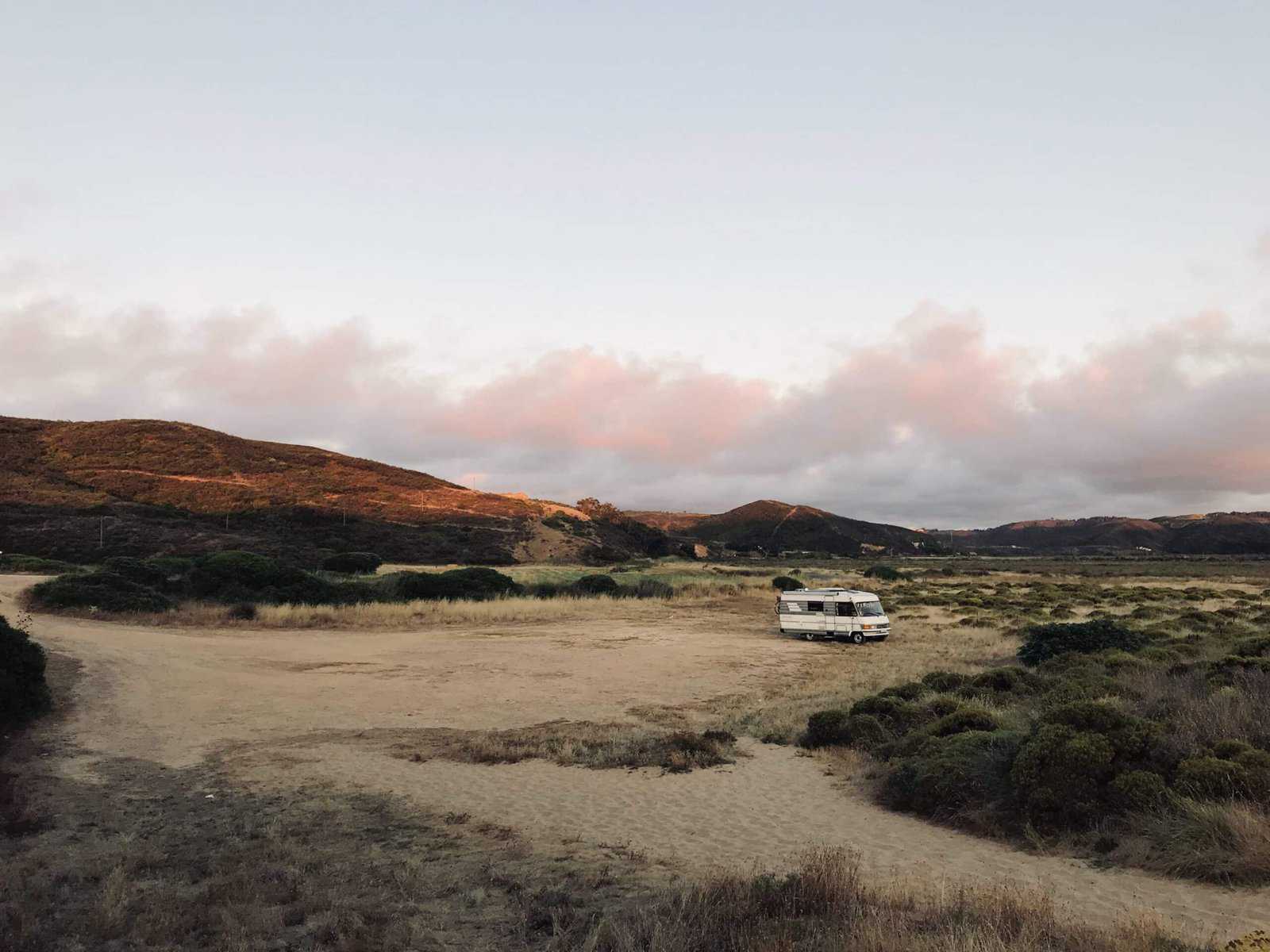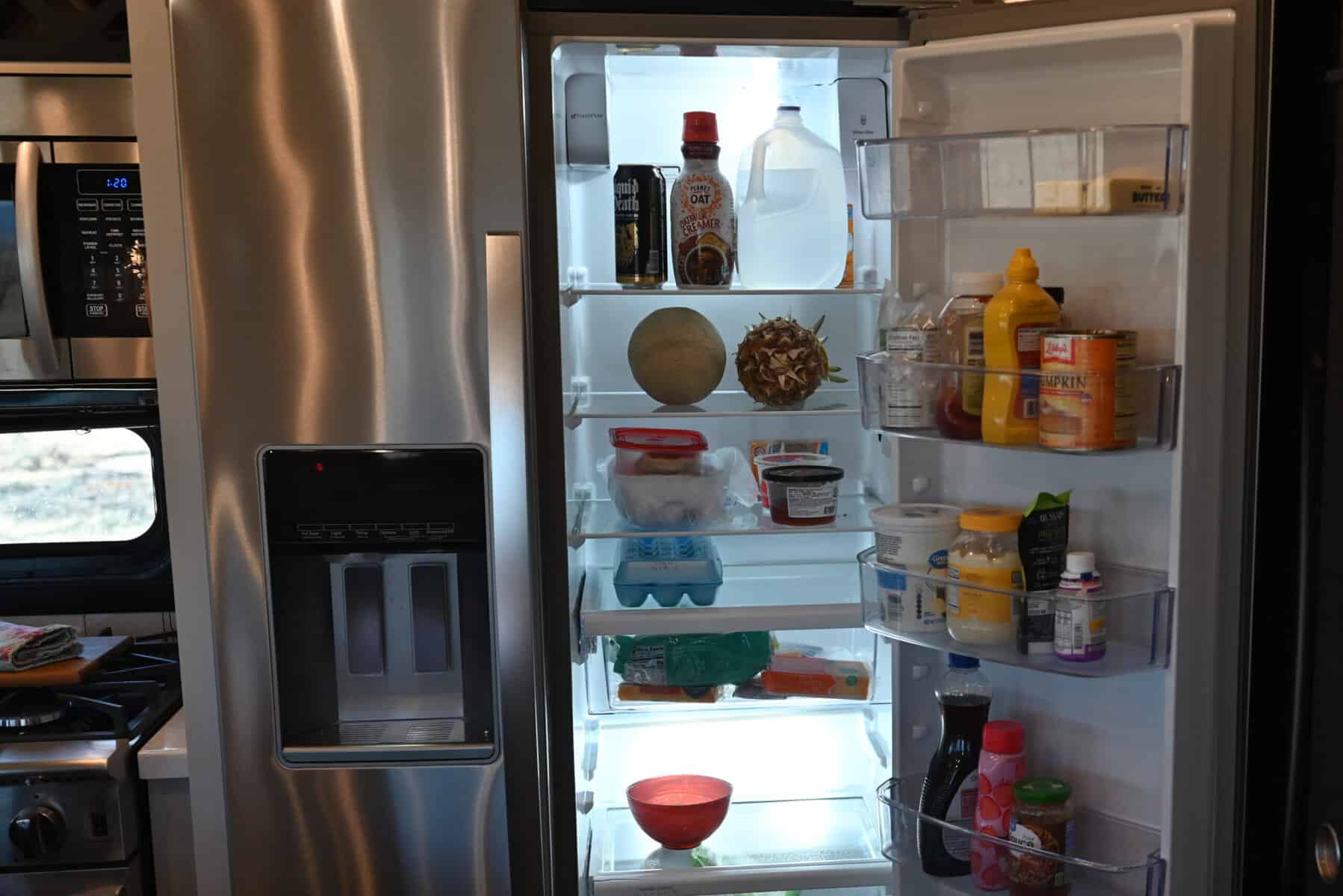Whispering pines, undisturbed vistas, and the freedom to explore—that’s why we love RVing, right? If you’re an avid RV boondocker like I am, you know that the thrill of traveling off-grid and discovering new dispersed dry camping destinations is a huge part of this lifestyle. But there’s just one problem with it: finding places to dump the camping trash that we generate.
As RVers we have a profound duty to preserve the untouched landscapes we love. It starts by looking for responsible, designated trash dump locations. In this comprehensive guide to responsibly dump camping trash, let’s explore waste disposal sites and best practices for getting rid of garbage while boondocking.
Your Favorite Boondocking Spot is at Risk
Boondocking (aka dispersed camping) is all about embracing the solitude and serenity of nature, often in remote, pristine locations. However, these beautiful landscapes are fragile and easily impacted by irresponsible RV trash dumping.
“Most RV users are responsible and take seriously their obligations to protect public lands,” said Kevin Broom of the RV Industry Association (RVIA) when discussing dispersed camping problems in Wyoming. Chances are good that you fall into that group of RVers that Broom is talking about. But sadly, a large number of RVers do not see things the same way.
In Pennsylvania, state forests that were once open to free dispersed camping now limit it to backpacking to prevent more environmental damage. And over in Utah, backcountry desert roads are getting closed. The Bureau of Land Management recently closed 300 miles of roads along Labrynth Canyon, a popular boondocking and off-road vehicle riding spot.
As visitation to the Moab area increases, finding this balance becomes increasingly difficult. The new travel plan does a strong job of finding this balance.
BLM Releases Final Draft for Labyrinth Canyon, Grand County Commissioner Jacque Hadler
Each chip bag, each discarded battery, leaves an imprint on organized campgrounds and dispersed camping spots. Each puts our boondocking recreation freedom at risk. So whether you’re boondocking during a weeklong excursion, or full-time RVing, understanding how and where to dump camping trash, recyclables, and hazardous camping items is crucial. Here’s how to do it.
How to Manage Your Boondocking Trash
Boondockers rarely get the convenience of trash collection services that you would find at developed campgrounds. The best way to manage your RV waste efficiently is to plan ahead. Carrying the right gear makes it easier. Knowing where you can properly dispose of waste ahead of time reduces the risk of carrying it with you longer than anticipated. Here’s how to get started.
Pack it in, Pack it out
The “pack it in, pack it out” philosophy is simple: if you bring something into a remote location, you must take it out when you leave. Collect and carry out every piece of trash, including food wrappers, beverage containers, and even biodegradable waste like apple cores or banana peels. Then take it to a suitable disposal location (see below for some ideas). This principle follows the Leave No Trace ethics of boondocking in the backcountry, something every RVer needs to practice.
Carry Durable Bins and Small Trash Bags
Carry the right trash collection and disposal supplies. Bring along durable trash bags, containers, and storage solutions designed for waste management. These should be waterproof and tightly sealed to prevent leaks and odors.
Carry smaller trash bags. They are much easier to deposit into “capped” trash cans when refueling at fuel stations. Use separate containers for trash and recyclables to make recycling easier when you reach a proper disposal point.
Watch for Public Trash Bins
As you travel, be on the lookout for public trash bins. Some remote areas and popular designated boondocking locations provide designated cans or dumpsters for waste disposal. These are often located at trailheads, information boards, or near vault toilets.
Plan for Trash Cans on Your Route
Before embarking on your boondocking adventure, research your RV route and the locations you’ll visit. Knowing where you can legally and ethically dispose of small amounts of garbage will help you plan your stops accordingly. Look for potential trash disposal points. Although some may argue that RVer trash disposal at gas stations, public campgrounds, rest areas and grocery stores is not acceptable, putting it in a proper collection barrel is far better than illegally dumping it. See the “Apps and Websites” section for more planning tips.
Pay for Campground Dump Stations
Even the most rugged boondocker appreciates the amenities of an RV campground now and then. Many RV parks, along with national and state park campgrounds, offer dump stations with trash disposal for patrons. You will pay a fee to use the dump station, but also have a dumpster for camping trash and possibly your recyclables too. It’s a symbiotic relationship—your fees help maintain the parks, and you continue your travels lighter and cleaner.
Don’t Trash Your Hazardous Waste
All of us carry hazardous camping garbage, and most of us don’t even know it. Did you know that propane canisters shouldn’t go into the trash? Along with batteries and household cleaners, they are considered hazardous waste. They are not regular garbage. Never dispose of them in household trash bins. Do the right thing; hold on to them until you get to an urban area. You are likely to find specialized recycling facilities that accept hazardous waste.

Yes, You Can Recycle on the Road, Too
Recycling is an essential part of responsible boondocking trash management. Many materials, such as glass, plastic, aluminum, and cardboard, can be recycled. And with the right timing, you might arrive in a location with an organized community recycling day. Here are some tips to incorporate recycling into your boondocking lifestyle:
- Reuse and Repurpose: Whenever possible, find creative ways to reuse containers and other recyclables, rather than throwing them away. This reduces your overall waste. Relatively clean paper products like napkins, paper towels and paper plates can be repurposed as easy DIY campfire starters.
- Plan for Recycling: When planning your journey, identify recycling centers along your route and make a plan to stop at them when needed. Learn how to find recycling centers when you’re RVing. Some recycling centers allow drop-offs from the public, even if you’re not a local resident. You might even make money recycling plastic containers.
- Compact and Sort: Smash down your recyclables and sort them into designated containers. This saves regular trash collection space and keeps recyclables organized for a quick drop-off.
Apps and Websites to Find Camping Trash Drop-Off Locations
Websites and apps are a valuable resource for RV boondockers seeking information on waste disposal locations, recycling centers and dump stations. Turn to them for real-time information, user reviews, and helpful tips to make waste management more convenient and efficient during your travels.
A few of the best websites and apps to help you manage and dump boondocking trash include:
- RV Life Trip Wizard: The RV Life app provides a listing of services and points of interest along your route including, parks, dump stations and rest areas all potential places to dispose of waste.
- Recycle Coach: Recycle Coach provides information about local recycling programs, schedules, and accepted materials. While it’s not exclusively for boondocking RVers, it can help you find recycling facilities along your route.
- RV Dump Sites: The RV Dump Sites app focuses on finding dump stations across North America. It includes user-submitted updates and a rating system for stations.
- AllStays: The AllStays app provides a comprehensive directory of campgrounds, RV parks, dump stations, and other services. Users can filter search results based on their specific needs.
- iOverlander: This community-driven app offers information on campsites, parking locations, water sources, waste disposal points, and more, with reviews from fellow travelers.
Top Ways to Deal with Camping Garbage
We all generate trash to some degree. But the best way to deal with camping trash as a boondocking RV traveler is to minimize our waste generation in the first place. Here are some strategies to help you reduce your environmental footprint:
1. Pack thoughtfully
Prioritize reusable items, such as water bottles, utensils, and containers, to cut down on disposable waste.
2. “Unpackage” Food at the point of sale
Much of the trash generated while boondocking is from food packaging. Minimize what you will eventually need to throw away by “unpackaging” food at the grocery store. Place the edible part inside Tupperware or other reusable containers. Then throw away the original packaging. Do it while you are still “in town” where there are garbage cans, typically at the grocery store you patronize.
3. Buy in bulk
Purchase items in bulk to reduce packaging waste. Transfer bulk items to reusable containers for storage.
4. Buy sustainable products
Choose products with minimal packaging or eco-friendly packaging materials.
Plan camping meals ahead of time. This way you can avoid food waste and use ingredients that can be consumed entirely to minimize organic waste.
6. Don’t buy disposable batteries
Invest in rechargeable batteries for devices in your RV to reduce the need for disposable batteries.
Stay Informed and Adapt as You Go
Waste disposal options and regulations can vary significantly from one location to another, and they can change over time. Therefore, it’s essential to stay informed and adapt your waste management strategies on the fly.
Conclusion
Learning how to manage and dump boondocking trash is not only an ethical commitment but also a practical necessity for RV boondockers. By following the “pack it in, pack it out” principle, using designated disposal points, and incorporating recycling and waste reduction strategies into your travels, we can all keep enjoying the freedom and beauty of the great outdoors while minimizing our impact on the environment.
Embrace the challenge of responsible camping trash management as an integral part of your boondocking adventure. Together, we can preserve public lands for future generations to enjoy.




